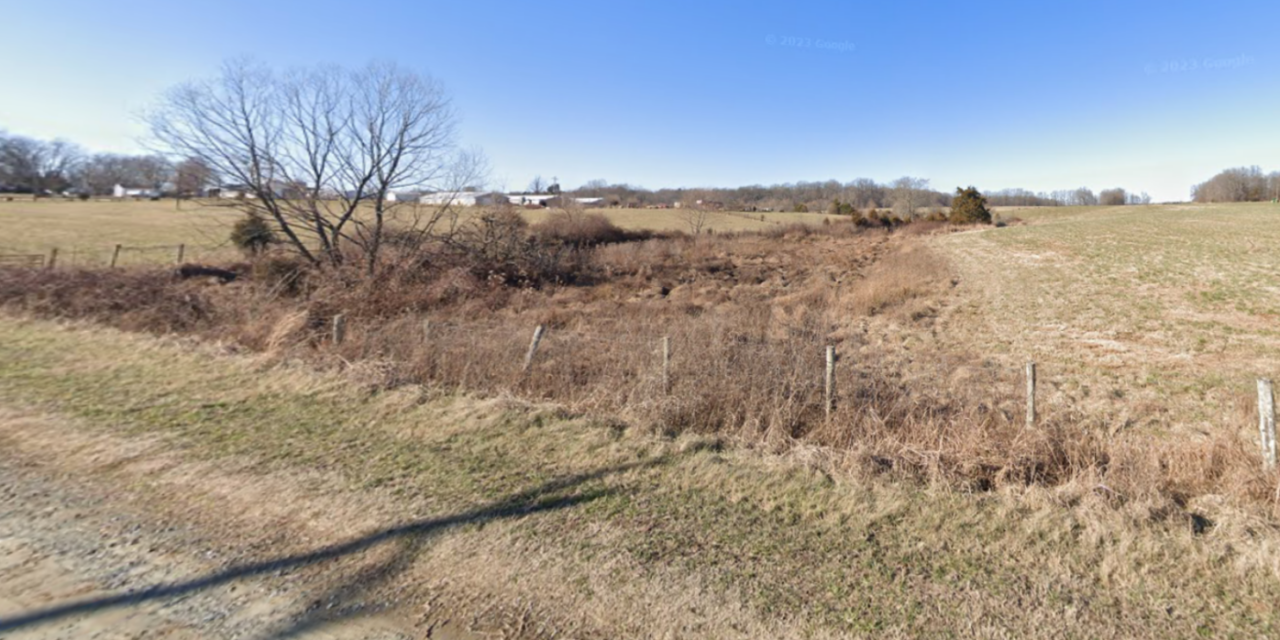For years and years, economic development officials pointed to the 806 acres of the Guilford County Prison Farm in eastern Guilford County as a prime spot for some large companies to come in and establish major operations.
In recent years, however, many companies have located giant new projects in Guilford County without so much as a glance toward the Prison Farm area.
The site has gone from hero to zero, from stud to dud, when it comes to its supposed economic development potential.
This week, Guilford County is entering into a new five-year lease with a farmer who will keep much of the land as farmland and pastures and pay the county about $23,000 a year. This is the same land that – 10 years ago, at the height of Project Haystack fever – was predicted by a study from project backers to have an economic development impact in this area of $6.5 billion. And, no, that “billion” is not a typo.
After that, many companies with all sorts of projects flirted with putting a major operation on the land but passed it by. Now, they don’t even look at it anymore.
Greensboro Chamber of Commerce President and CEO Brent Christensen, who plays a key role in economic development efforts in the county, said it’s been a couple of years since any company has taken a look at the property.
He said the land truly is good for something, like a data center site, but the county has been drawing more businesses, such as manufacturing and distribution centers, which require a great road infrastructure and a strong water system.
“Several of those roads out there are two lane roads,” Christensen said.
In 2013, Project Haystack arrived suddenly on the scene as a proposed data center cluster, but since then, there hasn’t been any evidence of a company using the site for that purpose. Christensen said it still could be an ideal spot for the right customer. It has a very good power infrastructure, he said.
In the past, Burlington has considered supplying water lines if an attractive enough project located there.
Also, data centers don’t create many jobs and therefore don’t require a great road system.
The farm could catch a company’s fancy in the future.
“The data center industry has changed and continues to change,” Christensen said.
Another thing also helps keep that land rural open space. Every time there’s a hint of a major development at the old Prison Farm, the people who live in the area head to a local church for a community meeting and then rise up and challenge the project like you wouldn’t believe.
So, for at least the next half decade, as you drive by, you’re a lot more likely to see cows and horses on the land than bulldozers and cranes.


Name something our govt does well.
spend money
There is absolutely nothing wrong with two-lane roads, cows, horses, plowed fields, undeveloped farmland, and people who head to their local church for a community meeting and rise up to challenge major projects like you wouldn’t believe. There’s no need to develop every piece of dirt in this county for development’s sake. Some of us prefer living in wide open spaces, having trees, fields, farm animals, a few acres between us and our neighbors, less traffic, no sidewalks, quiet nights, over paved lots, and concrete buildings with constant traffic clogging up our roads. We aren’t all in favor of the growth being pushed upon us.
About the Prison Farm. They should approach the Solar Farm . With all that land it would pay. The property owners around the farm wouldn’t have to deal will traffic problems and no need to have water supply. It would be a win win for everyone.
There are videos about Agrivoltaic farming. They mount the solar panels high enough to farm the land underneath. The shade of the solar panels increases the yield of the crops, and the crops increase the efficiency of the solar panels by keeping them cooler. Something to consider??
Would be nice if some acreage could be set aside for hunting or target practice. Surely the county has a tractor or two available to plant feed corn that could be harvested and sold for cattle or as deer feed. County could allow dove hunts for a daily fee as a bonus.
If the 800+ acres were farmed to full production, it would produce enough produce to feed all of Guilford county and end hunger and food deserts. You can’t do that with a data center, or 4-lane asphalt road, or an industrial park that poisons the land (with forever PFOS chemical contamination) like the Toyota battery plant is likely to do. NC already has 2,500 abandoned hazardous waste sites as stated by the downloadable annual report to the governor. Once those acres are paved and polluted, you will never afford the cleanup. Why don’t we end hunger in Guilford County instead?
Leaving the county farm as a more natural area protects a significant number of birds and other wildlife. We don’t need to develop every inch of rural land.
Why does everything have to always be about the all mighty $$$? The county farm serves as a wonderful place for wildlife and open space for all to enjoy while still allowing an opportunity for commercial farming. It I far better for our community to have commercial areas concentrated in areas as opposed to urban sprawl that creates more opportunities for additional sprawl.